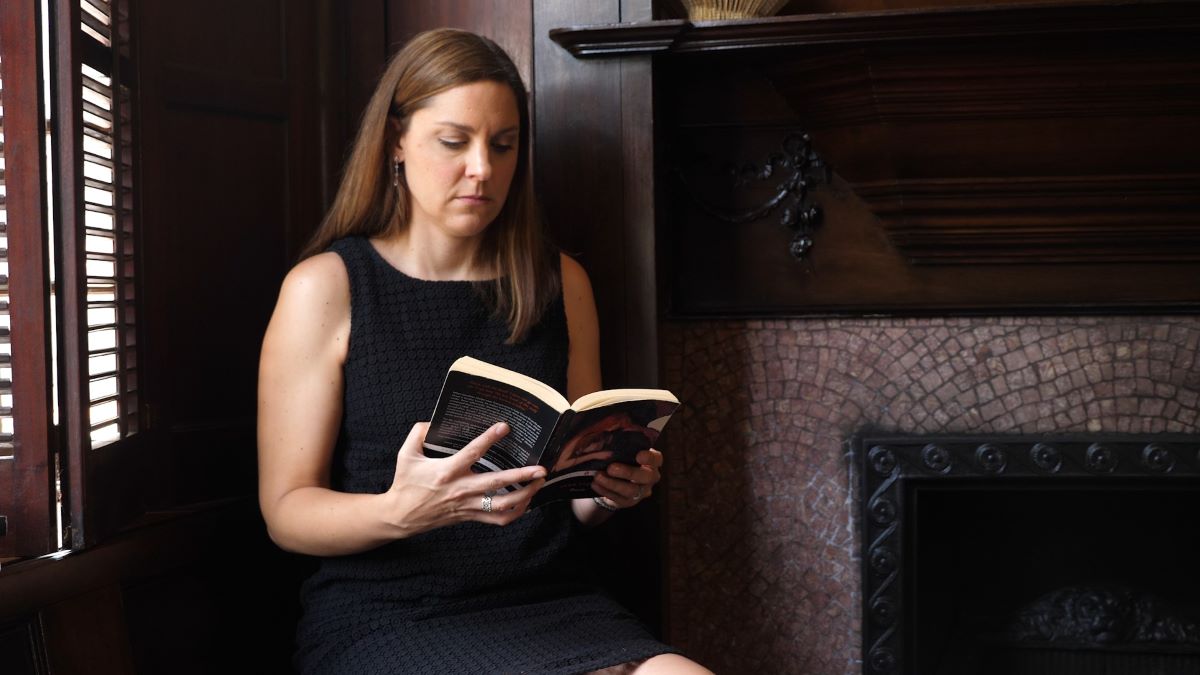Ellen Malenas Ledoux, Ph.D
HOME
Introduction, latest news
RESEARCH
Books, articles, grants, and conferences
TEACHING
Courses, reviews, civic engagement, grants and awards
SERVICE
Academic administration and leadership positions
OUTREACH
Media mentions and community outreach
Research
My research currently focuses on women’s cultural history during the eighteenth and early nineteenth centuries in the Anglophone, transatlantic world. My most recent book project, Laboring Mothers: Reproducing Women and Work in the Eighteenth Century (Virginia, 2023), examines how Enlightenment ideas about the public sphere and maternity both created and foreclosed professional opportunities for women in Britain and its colonies. Writing related to this work on female soldiers and actresses has appeared in such venues as The Eighteenth Century: Theory and Interpretation; Britain, Representation, and Nineteenth-Century History; and the edited collection Stage Mothers: Women, Work, and the Theater, 1660-1830 (Bucknell, 2014). My first book, Social Reform in Gothic Writing: Fantastic Forms of Change, 1764-1834, was published by Palgrave Macmillan in 2013. Social Reform provides a transatlantic view of Gothic writing’s intervention into the public discourse surrounding seminal issues of the long eighteenth century, such as women’s property rights, population pressure, public health, and abolition. My related work on Gothic drama and the “female Gothic” genre has appeared in Studies in Romanticism, Communications, and Women’s Writing. Throughout the years this work has been supported by a variety of institutions, including The Lewis Walpole Library at Yale University, The Chawton House Library, The Institute for Research on Women, The Rutgers Research Council, and the Mellon Foundation, among others.
Books
Articles
Grants
Conferences
Books
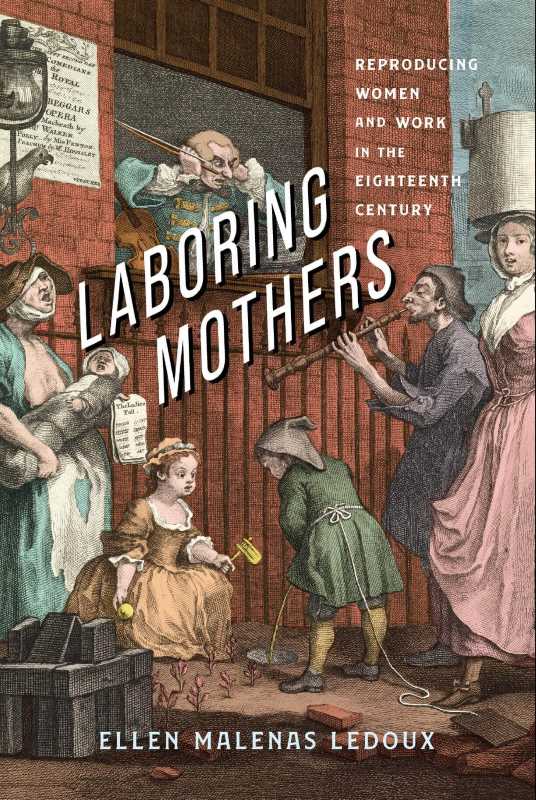
Laboring Mothers: Reproducing Women and Work in the Eighteenth Century
University of Virginia Press, 2023
Laboring Mothers begins with the premise that ideas about what constitutes “good” and “bad” mothers fundamentally structure the way we think about women, families, and work. Laboring Mothers traces the roots of these ideas, especially as they relate to work outside the home, back to the eighteenth century. Through analyzing aesthetic and historical representations of mother-workers in Britain and her colonies, the book demonstrates how the intersection of two eighteenth-century phenomena—the transformation of the public sphere and the “cult of motherhood”—plays a critical role in creating lasting models of ideal and incompetent mothers.
Enlightenment concepts of maternity claimed women’s nurturing behavior as natural and figured women’s domestic work as central to forming future citizens and subjects. The book argues that these same concepts paradoxically galvanized privileged women’s ability to earn income and to professionalize. Drawing on the late eighteenth-century rhetoric of women as nourishers and domestic educators, savvy and industrious mothers suggested that work, rather than depriving children of their attention, enabled them to better care for their offspring. At the same time, this model of mother as caretaker disqualified the most marginalized women (the poor, the enslaved, the sexually stigmatized) who were obligated to work outside the home, from being perceived as suitable, even competent mothers. Laboring Mothers suggests that our contemporary discussion around “work-life balance” originates in a false construct meant to place the burden of resolving systemic forms of inequality on marginalized women. The book thus creates a through line between the difficulties faced by (re)productive women today and the unfulfilled promises of the Enlightenment.
“Poised to make a significant contribution to the scholarship in the field. There is no single book that encompasses what Professor Ledoux does here.”
— Marilyn Francus, West Virginia University, author of Monstrous Motherhood: Eighteenth-Century Culture and the Ideology of Domesticity
"In this beautifully written book, Ellen Ledoux reveals the eighteenth-century origins of modern discourses of working motherhood and the structures of inequality that underpin them. In six illuminating chapters on real and fictionalised mothers, Ledoux reveals the uncomfortable truth that the history of working motherhood is a history of power and privilege in which some women found ways to access to the more culturally valued aspects of maternity at the expense of others. After reading the various and usually fraught ways that women – celebrated actresses, military women, enslaved women, sexworkers and midwives – managed their domestic and working lives, you will never see the so-called 'Mommy wars' the same again."
— Jennie Batchelor, University of Kent, author of The Lady’s Magazine (1770-1832) and the Making of Literary History
“Though "perpetually pregnant, nursing, and caring for children," and in the face of the solidifying "cult of motherhood," some eighteenth-century British mothers nevertheless created space for their own intellectual explorations and even performed waged labor. Laboring Mothers asks how they managed it. Ellen Malenas Ledoux proves a trustworthy guide to a wide range of evidence -- not only eighteenth-century literary and visual representations of working maternity, but also documented choices made by real-life working mothers. She reviews influential scholarly conversations about Enlightenment maternal ideals, offers a balanced view of the limitations and affordances of the "public sphere" model for understanding working maternity, and points to twenty-first-century "afterlives" of eighteenth-century assumptions about mothers and work. Every student of eighteenth-century British culture will benefit from reading this book."
— Toni Bowers, University of Pennsylvania, author of The Politics of Motherhood: British Writing and Culture, 1660-1760
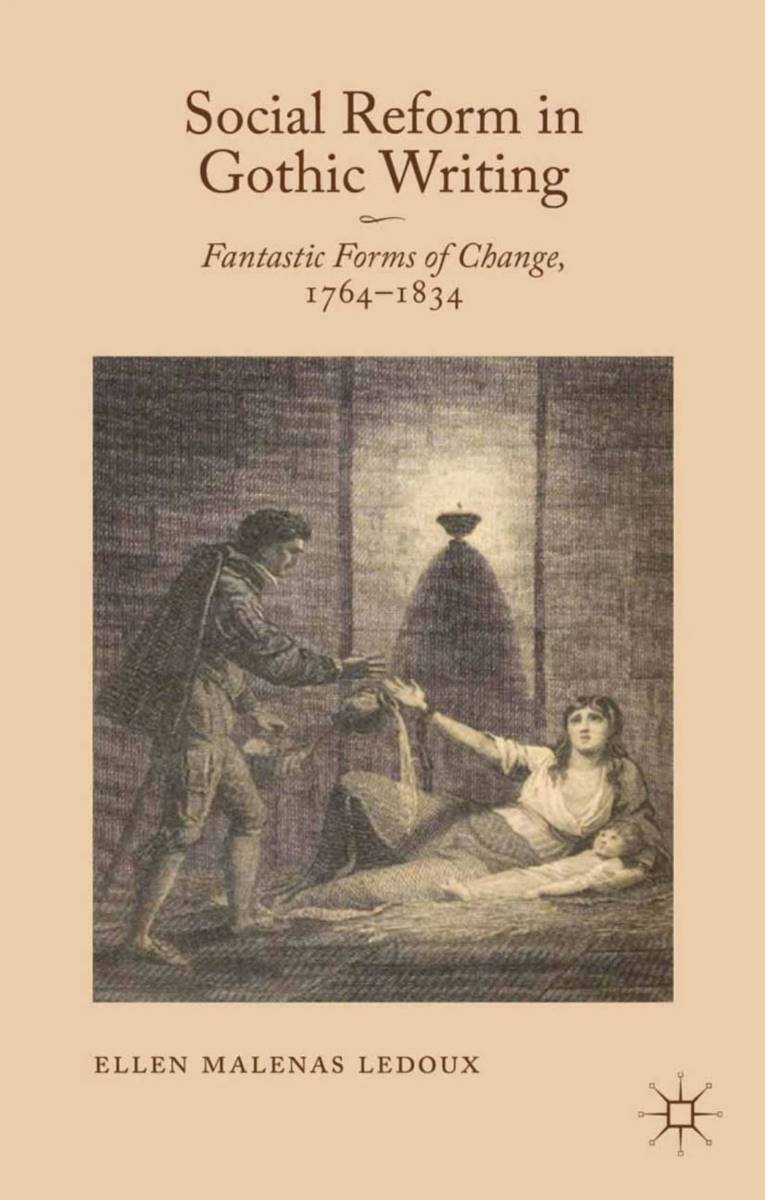
Social Reform in Gothic Writing: Fantastic Forms of Change, 1764-1834
Breaking with traditional analyses of Gothic literature that limit its influence to a reactive critique of current events, Social Reform in Gothic Writing argues for a new political reading of the Gothic from England, America, and colonial Jamaica―one that recognizes the transformative power of this popular literature. The book provides a transatlantic view of Gothic literature’s intervention into the public discourse surrounding seminal issues of the late eighteenth and early nineteenth century, such as women’s property rights, population pressure, public health, and abolition. The book demonstrates how Gothic literature’s reformist agenda negotiated with and adapted to changing cultural and political conditions, leaving an indelible mark on the activism and legislation of the day.
“Ledoux’s examination of gothic writing in relation to social reform … succeeds in mounting a convincing argument about the ‘political activism’ of the early gothic.”
— Agnieszka Soltysik Monnet, Eighteenth-Century Fiction 28, no. 3 (Spring 2016): 563-568.
“Ellen Malenas Ledoux’s ‘Social Reform in Gothic Writing’ is a bold contribution to the field of gothic studies.”
— Sharon L. Decker, The Eighteenth-Century Intelligencer 28, no. 2 (September 2014): 67-69.
“This well-written and persuasive account of the early Gothic adds to the recent efforts . . . to understand the Gothic as a transatlantic phenomenon. . . . Those interested in Gothic novels, plays, and poetry will find much to discuss and debate in this interesting new book.”
— JoEllen Delucia, Studies in the Novel 46, no. 4 (Winter 2014): 518-20.
“Erudite and well written . . . Ledoux’s text undoubtedly furthers and enhances eighteenth-century scholarship in general, and academic aspects of colonial studies in particular.”
— Nadya Chisty-Mujahid, Journal for Eighteenth-Century Studies 37, no. 4 (2014): 571-72.
Articles
My published articles investigate my current research into women’s cultural history of the eighteenth century and continue my long-term interest in the Gothic mode. Much of this work can be accessed freely through SOAR (Scholarly Open Access at Rutgers).
Peer-Reviewed Articles
“Privilege, Parenting, and Screens: Navigating Competing Priorities during the COVID Crisis.”
In Public Catastrophes, Private Losses, edited by Sarah Tobias and Arlene Stein. New Brunswick: Rutgers University Press (January 2025, forthcoming).
“'My Dear Children': Gender Variance, Parenthood, and Deborah Sampson's Post-Revolutionary Work.”
Early American Literature 59, no. 3 (Fall 2024, forthcoming).
“The Queer Contact Zone: Empire and Military Masculinity in the Memoirs of Hannah Snell and Mary Anne Talbot, 1750-1810.”
The Eighteenth-Century: Theory and Interpretation 60, no. 3 (Fall 2019): 223-51.
“Commerce, Civic Education, and Romantic Drama: Stage Illusion in Coleridge’s Remorse.”
Studies in Romanticism 57, no. 4 (Winter 2018): 557-80.
“Was There Ever a Female Gothic?”
Communications 3 (June 2017): 1-7. Special issue on “Studies in Horror and The Gothic.”
“I am not a Woman and a Sister: Female Soldiers in the Eighteenth-Century Contact Zone.”
The Workshop 4 (2016): 103-07, 116-34.
“Working Mothers on the Romantic Stage.”
In Stage Mothers: Women, Work, and the Theatre, 1660-1830, edited by Elaine McGirr and Laura Engel, 79-104. Lewisburg, PA: Bucknell University Press, 2014.
“Florizel and Perdita Affair, 1779-80.”
BRANCH: Britain, Representation and Nineteenth-Century History, edited by Dino Franco Felluga. Extension of Romanticism and Victorianism on the Net. Web. March 2013.
“Defiant Damsels: Gothic Space and Female Agency in Emmeline, The Mysteries of Udolpho, and Secresy.”
Women’s Writing 18, no. 3 (August 2011): 331-347. Re-published as part of the Women’s Writing 20th Anniversary Collection.
“Reform Ideology and Generic Structure in Matthew Lewis’s Journal of a West India Proprietor.”
Studies in Eighteenth-Century Culture 35 (2006): 27-51.
Book Reviews
Review of Eliza Fenwick: Early Modern Feminist, by Lissa Paul,
The Eighteenth-Century Intelligencer 34, no. 1 (March 2020): 23-25.
Review of Gothic Subjects: The Transformation of Individualism in American Fiction, 1790-1861, by Siân Silyn Roberts.
Early American Literature 50, no. 2 (2015): 612-16.
Non-Peer Reviewed Essays
“A Penny Saved? Teaching Early America with No-Cost Reading Materials,”
Society for Early Americanists Newsletter 31, no. 2 (2019): 14-15.
“A Monstrous Mash-Up: Six Gothic Tales from the Eighteenth Century to Today,”
American Scholar Magazine, 29 October 2018.
Grants
Research Grants and Fellowships
2023 Subvention Program Grant, Rutgers Research Council ($2,500)
2020-2021 Seminar Fellowship, Institute for Research on Women, Rutgers University ($5658)
2018-2019 Research Council Grant, Rutgers University ($2,500)
2018-2019 Residential Fellowship, Lewis Walpole Library at Yale University ($2,011)
2017 Residential Research Fellowship, Chawton House Library, UK ($880)
2016 Digital Dispatches Grant, “Creating a Digital Edition,” Rutgers University ($2,030)
2015 Travel Grant, The Center for Eighteenth-Century Studies, Indiana University ($875)
2015 Digital Dispatches Grant, “The Digital Antiquarian,” Rutgers University ($1,700)
2013-2014 Seminar Fellowship, Institute for Research on Women, Rutgers University ($4,680)
2011-2012 Faculty Research Grant, Rutgers University ($2,500)
2008-2009 Faculty Fellowship, Wolf Humanities Center, University of Pennsylvania ($5,000)
2008-2009 Research Council Grant, Rutgers University ($2,500)
2005 Aubrey L. Williams Research Travel Fellowship, ASECS ($1,500)
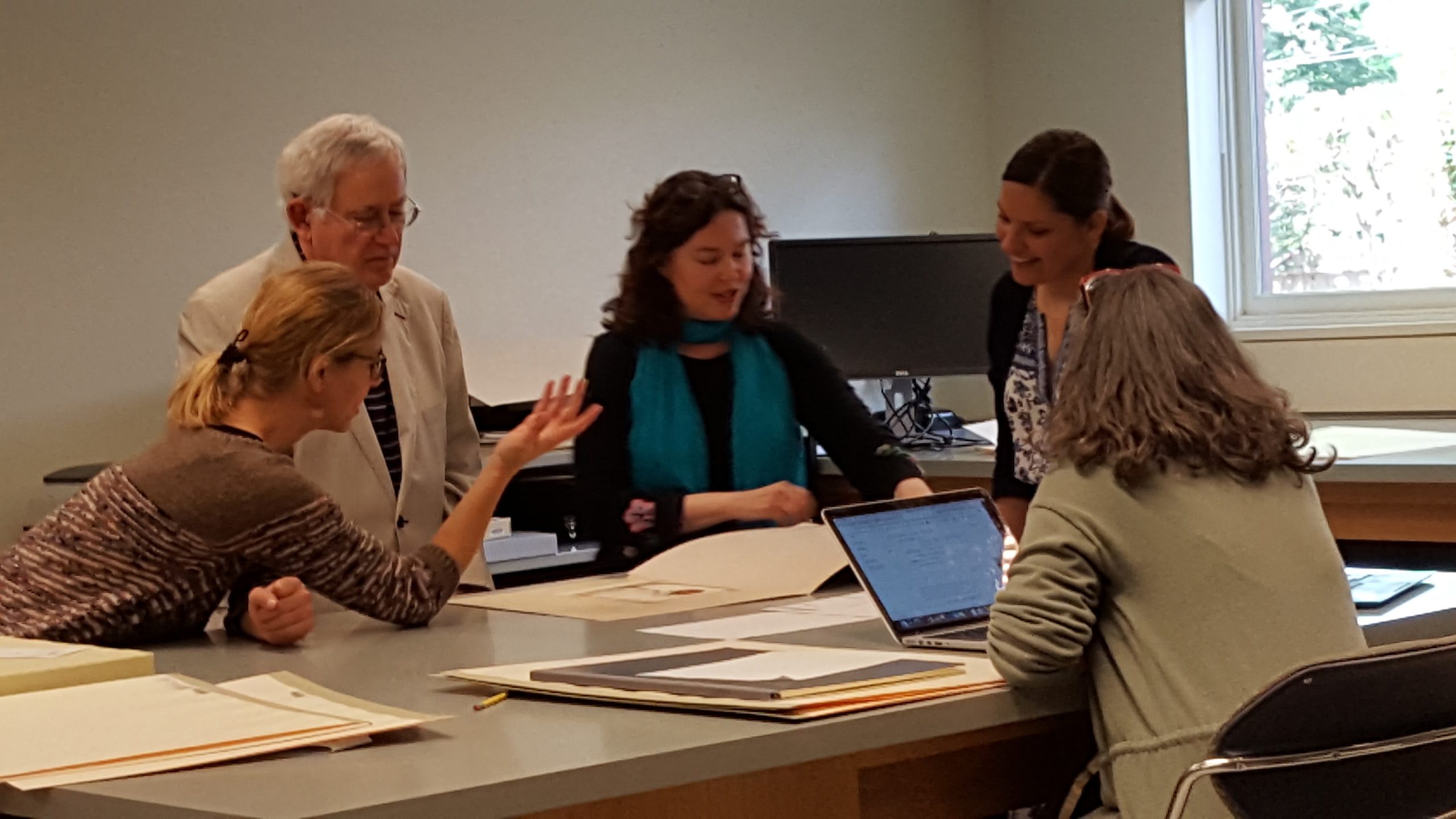
Conferences
Recent conferences papers and invited presentations
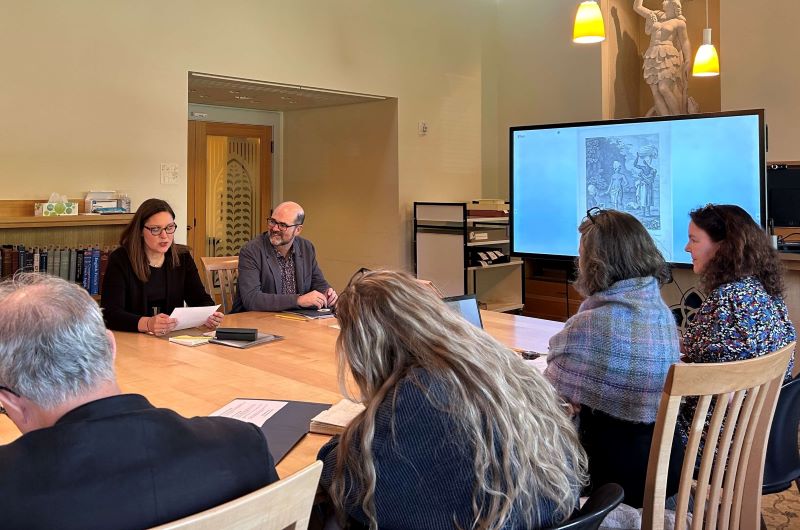
2024 Roundtable: “Giving and Getting Feedback” and Poster Session: “Teaching the Eighteenth Century,” American Society for Eighteenth-Century Studies, Toronto.
2023 “Woman Warrior and Republican Mother: Competing Visions of Patriotic Femininity in the Life of Deborah Sampson,” Society of Early Americanists, University of Maryland.
2023 “Camaraderie and Cooperation in Louis Charles Ruotte’s The West India Washer-woman,” “Female Friendship, Collaboration, and Creativity Scholars’ Workshop,” Lewis Walpole Library, Yale University.
2022 “Street Life: Picturing Mothers Practicing Itinerant Trades in Eighteenth-Century London,” Virtual Friday Symposium, Lewis Walpole Library, Yale University.
2022 “Motherhood in Chains: The Abused Pregnant Body in The History of Mary Prince (1831),” American Society for Eighteenth-Century Studies, Baltimore.
2020 “Teaching Early America with No-Cost Reading Materials,” American Literature Association, San Diego. (Cancelled due to Covid-19 Pandemic.)
2020 “Professions of the Body: The Campaign Against the Man-Midwife,” American Society for Eighteenth-Century Studies, St. Louis. (Cancelled due to Covid-19 Pandemic)
2019 “Laboring Mothers: Reproducing Women and Work in the Eighteenth Century,” Fellows’ Presentation, Yale Center for British Art.
2019 “Women’s Precarity in the Eighteenth Century” (Roundtable) and “Queering Military Disability: Mary Anne Talbot,” American Society for Eighteenth-Century Studies, Denver.
2018 “Magdalen Maternity: Representing the Prostitute Mother in Fiction and Institutional Publications,” North American Society for the Study of Romanticism, Brown University.
2017 “Disability and the Queer Military Body in the Memoirs of Hannah Snell and Mary Anne Talbot,” Queering the Archives Symposium, Lewis Walpole Library, Yale University.
2017 “Circulating the Gothic,” International Gothic Association panel, North American Society for the Study of Romanticism, Ottawa.
2017 “Military Memoirs of the Eighteenth-Century Atlantic World,” Washington Early America Seminar, University of Maryland.
2017 “Military Queer Crip: Disability in Mary Ann Talbot’s Memoirs,” Interdisciplinary Nineteenth-Century Studies, Philadelphia.
2016 “Commerce, Civic Education, and Stage Illusion,” International Conference on Romanticism, Colorado Springs.
2016 “Transgender as a Historical Category,” American Society for Eighteenth-Century Studies, Pittsburgh.
2015 “The Queer Contact Zone,” American Society for Eighteenth-Century Studies, Los Angeles.
2014 “Hannah Snell at the New Wells: Transvestism and Imperial Performance,” Society of Early Americanists, London.
2014 “Stage Mothers: Maternity, Celebrity, and the Eighteenth-Century Media Revolution,” Plenary Address, English Graduate Student Association Conference, Rutgers University.
2013 “Representing Lady Tars: Transvestism and Seafaring in the Revolutionary World,” North American Society for the Study of Romanticism, Boston.
2013 “Upstairs/Downstairs: Working-class Gothic,” American Society for Eighteenth-Century Studies, Cleveland.
2012 “Reading Mary Robinson’s Memoirs,” East-Central/American Society for Eighteenth-Century Studies, Baltimore.
2012 “Working Mothers on the Romantic Stage: Sarah Siddons and Mary Robinson,” Delaware Valley British Studies Group, Philadelphia.
2012 “ʻA sweet appearance, but a dread illusion’: The Conjuring Scene in Coleridge’s Remorse,” ERR Special Session at North American Society for the Study of Romanticism, University of Neuchâtel, Switzerland.
2012 “Portrait of a Working Mother: Sarah Siddons and Mary Robinson,” Inter-Disciplinary Nineteenth-Century Studies, University of Kentucky.
2011 “Schemes of Reformation’: Defining the New Republic’s Approach to Illness in Charles Brockden Brown’s Arthur Mervyn,” North American Society for the Study of Romanticism, Park City.
2011 “Transmuting the Baser Metals: Political Economy in Godwin’s St. Leon,” University of Pennsylvania Eighteenth-Century Reading Group, Philadelphia.
2011 “‘Well-meant persecutions’: Philadelphia’s 1793 Yellow Fever Outbreak in Charles Brockden Brown’s Arthur Mervyn,” Society of Early Americanists, Philadelphia.
2010 “A Castle of One’s Own: Gothic in Emmeline, The Mysteries of Udolpho, and Secresy,” East-Central/American Society for Eighteenth-Century Studies, Pittsburgh.
2010 “‘The Great Enchantress’: Ann Radcliffe’s Celebrity and the Emerging Gothic Canon,” North American Society for the Study of Romanticism, Vancouver.
2010 “Cross and Crescent: Sixteenth-Century Hungary in Godwin’s St. Leon,” American Society for Eighteenth-Century Studies, Albuquerque.
2009 “A Romantic Soldier in a Gothic Landscape: The American Revolution in Charlotte Smith’s The Old Manor House,” Canadian Society for Eighteenth-Century Studies, Ottawa.
2009 “Anachronistic Africans: Anti-Slavery Sentiment in Matthew Lewis’s The Castle Spectre,” North American Society for the Study of Romanticism, Duke University.
2008 “Becoming ‘Mother Radcliffe’: Ann Radcliffe’s Reception History and Contemporary Feminist Scholarship,” South-East/American Society for Eighteenth-Century Studies, Auburn University.
2007 “Romanticism and the Gothic,” panel organizer, American Society for Eighteenth-Century Studies, Atlanta.
2006 “The Difference It Makes: Writing Criticism of Texts by Writers of Multiple Genres,” American Society for Eighteenth-Century Studies, Montreal.
2005 “Private Education, Public Reform: William Godwin, Eliza Fenwick, and Charlotte Smith,” American Society for Eighteenth-Century Studies, Las Vegas.
2004 “Godwinian Radicalism and the Institutional Gothic: Eliza Fenwick’s Secresy and Charlotte Smith’s The Old Manor House,” Gothic Spaces Symposium, Stirling, Scotland.
2004 “The Plantation and the Polis: Reform Ideology and Nation-Building in Matthew Lewis’s Journal of a West India Proprietor,” American Society for Eighteenth-Century Studies, Boston.

